You know what they say, ‘Knowledge is power!’
And in Dungeons & Dragons, language can be your key to unlocking new opportunities and avoiding dangerous situations. As a savvy adventurer, you understand the importance of communication and its value to your journeys through foreign lands.
But with so many languages out there, deciding which ones are worth learning can be overwhelming. Fear not! We’ve compiled a list of the top 10 best languages to know in DnD 5e that will give you an edge on your travels.
From goblin to draconic, each language offers unique benefits that will aid you in everything from trade negotiations to avoiding deadly traps. So grab your quill and parchment because we’re about to dive into the linguistic wonders of the DnD world!
Related: How To Use Augury In DnD 5e – Quick Guide
10. Goblin
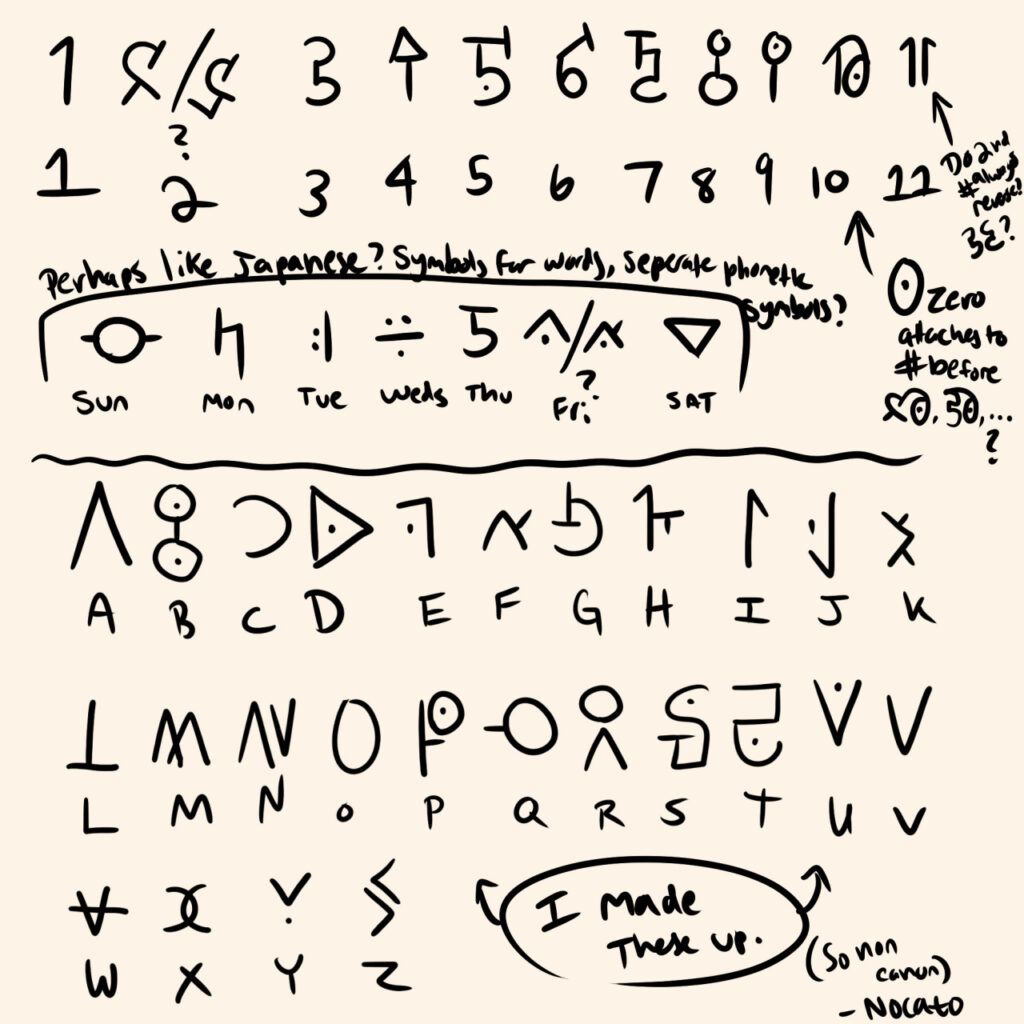
Knowing their language can mean the difference between life and death if you’re planning on delving into goblin territory in your next D&D adventure. Goblins are known for their cunning tactics and love of traps, so if you don’t know what they’re saying, you might fall into one of their deadly snares.
Plus, being able to communicate with them could lead to valuable information or even a potential alliance. Goblin is also helpful outside of goblin territory.
Many other creatures, such as bugbears and hobgoblins, also speak the language, making it a valuable tool for negotiations or espionage.
Additionally, the goblin is often used as a secret language among thieves and bandits, making it helpful for those looking to infiltrate their ranks.
In terms of gameplay mechanics, the goblin has its unique script, which can be used to decipher any written messages or signs left by goblins. Certain spells, such as comprehending languages and tongues, also allow players to understand spoken languages, including goblin.
While not necessarily the most common language encountered in D&D 5e, knowing goblin can prove invaluable in many situations.
From navigating through dangerous territories to gathering intel on enemy forces, mastering this tricky tongue will impress your fellow adventurers and keep you ahead.
9. Sylvan

You’ll be the talk of the town if you can speak Sylvan, the language of the fae and woodland creatures. It is a beautiful language spoken in a musical tone and often references nature and magic.
Knowing Sylvan can help you communicate with forest spirits, dryads, and other magical creatures inhabiting the woods.
The table below shows some of the benefits of learning Sylvan:
| Column 1 | Column 2 | Column 3 |
|---|---|---|
| Access to powerful spells related to nature and animals | Ability to communicate with woodland creatures such as centaurs, nymphs, and unicorns | Increased chances of negotiating peaceful interactions with faeries |
| Better understanding of ancient elven history and culture | Enhanced knowledge about herbalism, alchemy, and natural remedies used by druids | Ability to comprehend secret messages hidden in trees or caves |
Learning Sylvan is not easy since it requires dedication, time, and patience. However, once mastered, it can open new doors for your character’s development.
As an adventurer exploring unknown territories filled with dangers at every corner, knowing this language can make all the difference between life and death.
Remember to underestimate the power of speaking, Sylvan. It may seem like another language in Dungeons & Dragons, but its uses are vast and varied. So take on this challenge; who knows what secrets you might uncover?
8. Infernal
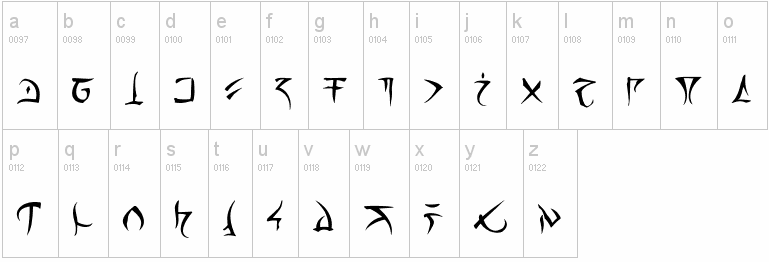
Learning Infernal, the language of demons and devils, can give your character an edge when dealing with evil entities in Dungeons & Dragons. Here are four reasons why you should consider adding Infernal to your character’s linguistic arsenal:
- Gain insight into demon/devil culture: Understanding the language and customs of demons and devils can help you anticipate their actions and motives. You’ll be better equipped to navigate their twisted logic and avoid falling prey to their manipulations.
- Communicate with Infernal creatures: Speaking Infernal allows you to converse with friends without relying on a translator or risking misunderstandings. This can be especially useful for negotiating deals or gathering information from demonic sources.
- Cast spells more effectively: Some spells require knowledge of Infernal to cast correctly, such as protection against evil or banishment spells. By learning this language, you’ll have access to a broader range of abilities that could prove crucial in battle.
- Infiltrate demonic cults: If your campaign involves battling a cult devoted to summoning demons or devils, knowing the language they use in their rituals is essential for infiltration and sabotage. By blending in with the cultists, you may be able to undermine their plans from within.
So why not add Infernal to your character’s repertoire? With its potential benefits for communication, spellcasting, and infiltrating enemy ranks, it’s a valuable asset for
7. Dwarvish

When playing as a dwarf in Dungeons & Dragons, knowing Dwarvish can give you an advantage in understanding their culture and traditions. With over 200 different dialects spoken by dwarves across the fantasy world, it’s essential to know the nuances of each one.
This knowledge can help you navigate social situations with other dwarves and gain insight into their beliefs and customs. In addition to cultural benefits, knowing Dwarvish can also aid you in practical situations.
It allows you to communicate with dwarven artisans known for creating some of fantasy’s finest weapons and armor. Conforming with them directly can result in better deals and superior equipment. Dwarvish is also helpful for gaining information about underground environments.
Dwarves often live beneath the earth’s surface, so understanding their language can help you safely navigate their tunnels and mines.
It could even help you uncover hidden treasures or secret passages. Overall, learning Dwarvish is valuable for any adventurer looking to immerse themselves in Dungeons & Dragons’ rich fantasy world.
Whether understanding cultural customs or communicating with skilled artisans, this language offers numerous advantages to enhance your gaming experience. So why not add it to your repertoire?
6. Giant
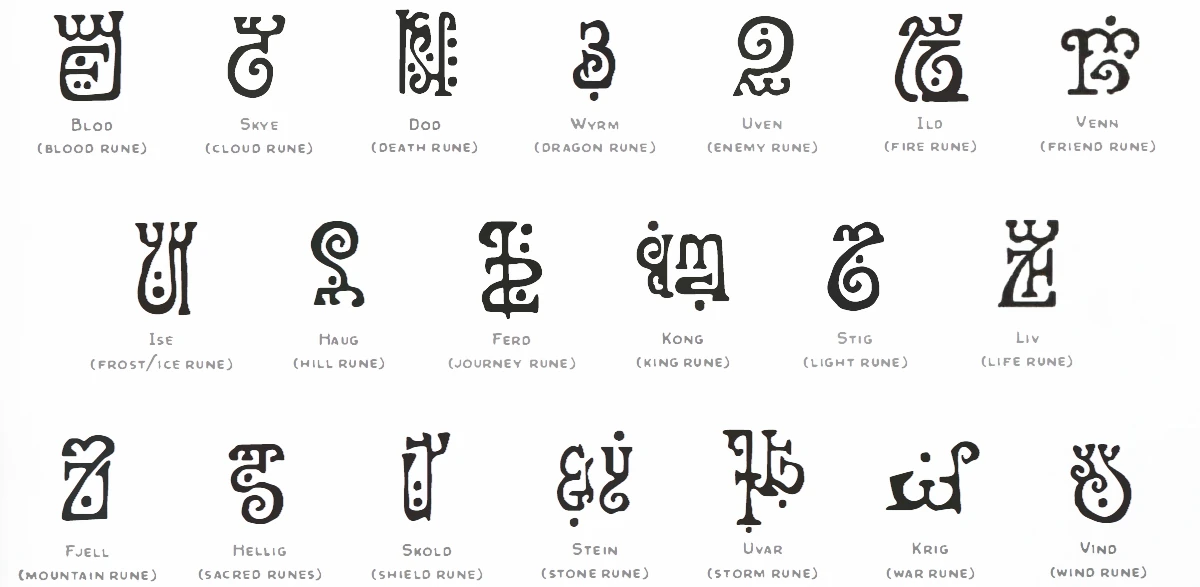
Giant language may seem intimidating, but it’s worth learning for any adventurer looking to communicate with the massive creatures that roam the fantasy world.
Giants are well known for their strength and size, making them formidable foes in battle. However, they also possess a rich culture and history that only those who know their language can fully appreciate.
Learning Giant allows adventurers to negotiate with giants, gain valuable information about their culture and customs, and even form alliances.
Giants possess a wealth of knowledge about their land and can provide crucial information on navigating treacherous terrain or locating hidden treasures.
Speaking their language shows respect for their culture and can help build negotiation trust. Furthermore, some giant subraces have unique abilities that only manifest when speaking their native tongue.
For example, Firbolgs can turn invisible when speaking Giant under certain conditions. Knowing this language could give an advantage over opponents who do not understand it.
While learning Giant may seem daunting at first glance, its benefits far outweigh any difficulties one might encounter while studying it.
As an adventurer seeking freedom in a fantasy world full of diverse cultures and languages, mastering Giant is a valuable tool that should be considered.
5. Undercommon
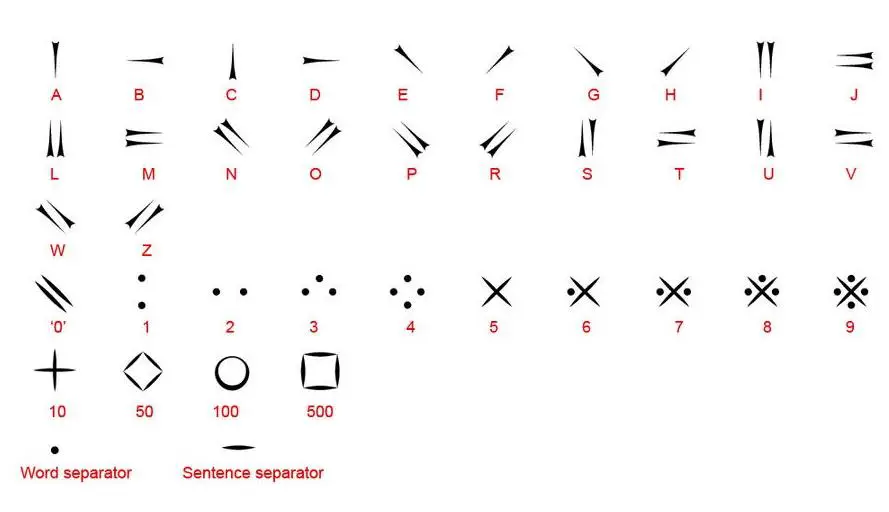
Navigating the treacherous Underdark becomes easier when adventurers know Undercommon, the language many residents speak.
As many creatures of the Underdark speak this language, it’s essential for communication and survival in this harsh environment. It’s a mix of various dialects and has been influenced by other languages such as Drow Sign Language and Draconic.
Learning Undercommon can provide players with numerous advantages. For instance, it allows them to communicate with races like the Duergar, skilled artisans who can create powerful weapons and magical items.
Additionally, players can eavesdrop on conversations between their enemies or even use it to their advantage during combat encounters.
Knowing Undercommon also opens up new quest opportunities for players, who can interact with different factions within the Underdark.
They may discover hidden treasures or secrets that will lead them closer to achieving their goals. Moreover, players may gain allies among these factions who could help them navigate dangerous territories.
Learning Undercommon is an excellent investment for any adventurer looking to explore the depths of the Underdark. It provides valuable communication skills and opens up opportunities that would otherwise be inaccessible.
So if you’re ready to take on this challenging terrain and all its dangers head-on, add Common to your list of must-have languages!
Related: How Does Scrying Work In Dnd 5e
4. Abyssal

You may find yourself in the depths of despair without a grasp on Abyssal, the language spoken by demons and other demonic creatures, leaving you vulnerable to their wicked intentions.
As one of the most ominous and complex languages in Dungeons & Dragons 5e, knowing Abyssal can give you an edge when dealing with evil entities.
Here are two reasons why learning Abyssal is essential:
- Understanding Demonic Intentions: Demons often use language to communicate their evil plans and desires. Knowing Abyssal can help you decipher their plots ahead of time, giving you an advantage in defeating them before they strike.
- Accessing Powerful Magic: Some spells and incantations require proficiency in Abyssal to be cast correctly. These spells are often associated with dark magic but can also be used for good purposes, such as banishing evil spirits or protecting allies.
Learning Abyssal is challenging – it requires dedication and focuses on mastering its intricate grammar rules and vocabulary. However, once mastered, it opens up a new world of possibilities for adventurers seeking power over darkness.
As someone who values freedom above anything else, learning Abyssal may seem like a paradoxical task – after all, why would anyone want to learn the language of demons?
But remember that knowledge is power; understanding your enemies’ language can help you break free from their grasp and protect those around you from harm.
Don’t let fear hold you back from mastering this vital skill – embrace the challenge and become a force to be reckoned with in any battle against evil forces.
3. Elvish
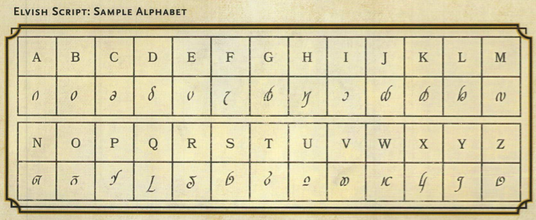
If you’re an adventurer seeking to immerse yourself in the rich culture of elves, delving into the intricacies of their language can provide a deeper understanding of their traditions and beliefs. Elvish is a flowing, melodic language often described as musical to the ears. It is spoken by numerous races, including high elves, wood elves, and drow.
Learning Elvish can open up new doors for communication with various creatures. You can interact with eleven scouts skilled in tracking and archery through this language.
You may also communicate with swashbucklers and thieves who rely on agility and stealth to complete missions. Knowing Elvish can also help you understand ranger animal handling and survival skills.
In addition to facilitating communication with different creatures, knowing Elvish can aid in espionage efforts. Blending in among elven communities could allow you access to information or opportunities otherwise unavailable.
Furthermore, learning Elvish spells, such as wall spells, can give you an advantage in battle.
To evoke an emotional response from the audience, consider this table:
| Benefit | Description | Emotional Response |
|---|---|---|
| Cultural Understanding | Gain insight into elven traditions and beliefs | Curiosity |
| Improved Communication | Interact more easily with various creatures | Connection |
| Espionage Opportunities | Blend in among elven communities for information gathering | Excitement |
| Battle Advantage | Access powerful spells like wall spells for strategic advantage | Empowerment |
Overall, learning Elvish is a valuable asset for any adventurer looking to broaden their horizons within Dungeons & Dragons. Not only does it provide cultural understanding, but it also improves communication abilities and offers potential espionage opportunities.
Plus, having access to powerful spells like walls can be incredibly useful in battle situations. If SIfyou has subconsciously desire freedom through exploration and adventure, consider adding Elvish to your language repertoire.
2. Draconic
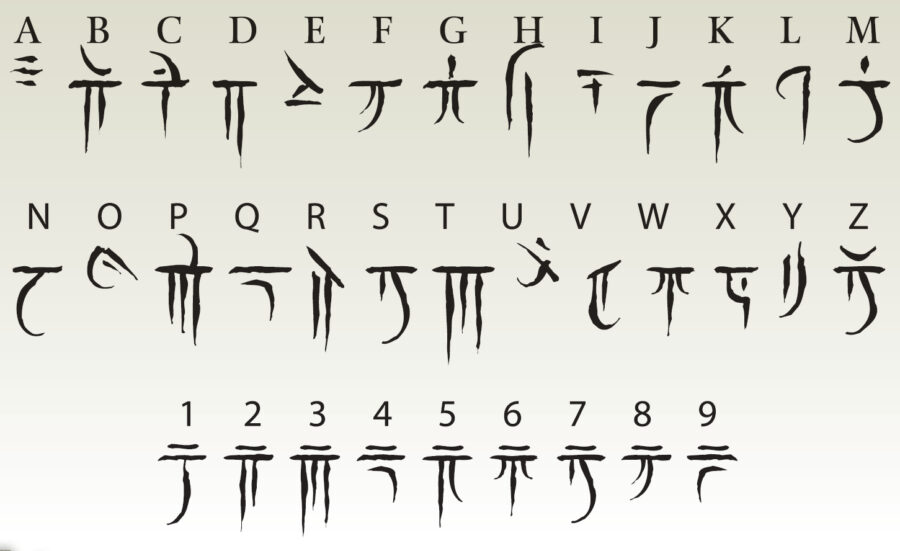
As an adventurer, delving into the intricacies of Draconic language can bring you one step closer to understanding the power and mystique of dragons.
This language is spoken by the most powerful creatures in the D&D universe, and knowing it could mean the difference between life and death when facing these formidable foes.
Draconic is a complex language, but its benefits are worth the effort. Dragons often speak Draconic, making it useful for eavesdropping and espionage.
Additionally, some spells can only be cast correctly if their incantations are spoken in Draconic. Knowing this language can give you an edge in the battle against dragons or other creatures that use it.
Beyond its practical uses, learning Draconic also has cultural significance. Dragons have a rich history in D&D lore, and understanding their language can provide insight into their beliefs and motivations. It can also facilitate communication with Dragonborn characters or NPCs who may speak both Common and Draconic.
While learning Draconic may require extra effort compared to more common languages like Orcish or Goblinoid, its benefits make it a valuable addition to any adventurer’s linguistic arsenal.
From gaining an advantage in combat to unlocking secrets about Dragonkind’s culture and history, learning this challenging yet rewarding language will surely enhance your gaming experience.
1. Common

Learning the trade language Common is essential for any adventurer seeking to navigate the diverse cultures and civilizations of the D&D universe.
The language is spoken by most civilized races and serves as a common ground for communication between them. As an adventurer, knowing Common can help you interact with various creatures, negotiate deals, and avoid conflicts.
Here are two reasons why you should prioritize learning Common:
- It’s a universal language: Besides being able to communicate with other humanoid races, Common also allows you to read and write in the typical script used by many languages. If you learn Common first, it will be easier to pick up other languages later.
- It facilitates teamwork: Since most adventurers know Common, it’s often used as the default language when working in a group. Knowing Common allows you to communicate effectively with your fellow adventurers during battles or encounters.
In addition to its practical uses, learning Common can also add depth and realism to your character’s backstory. For example, perhaps they grew up in a small village where everyone spoke only their native tongue until they learned Common from passing traders or travelers. Or maybe they learned it while living among humans as an elf or dwarfs.
Learning Common is an essential step towards becoming a successful adventurer in the D&D universe. It opens doors for communication and collaboration with others while helping you expand your knowledge of different cultures and societies. So don’t hesitate – start mastering this trade language today!
Related: Top 5 Best Monk Builds In DnD 5e
Conclusion
Congratulations! You’ve discovered the top 10 best languages in D&D 5e. Whether you’re a seasoned adventurer or just starting, these languages will enhance your gameplay and improve your chances of success.
From Goblin to Common, each language offers unique benefits that can help you quickly navigate different cultures and creatures.
In conclusion, mastering multiple languages is essential for any savvy adventurer in Dungeons & Dragons. So feel free to immerse yourself in the diverse world of D&D by learning these top 10 best languages.
With some practice and dedication, you’ll soon communicate like a pro with goblins, dwarves, elves, and dragons alike. Happy adventuring!






